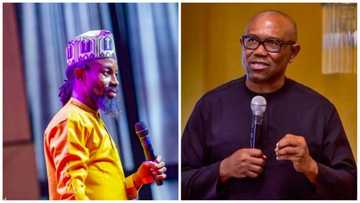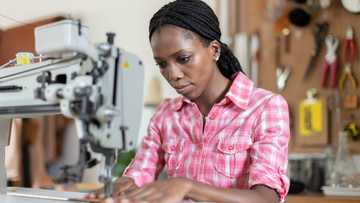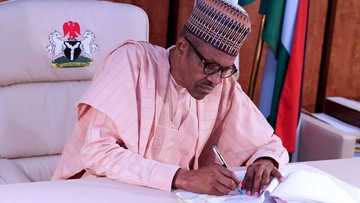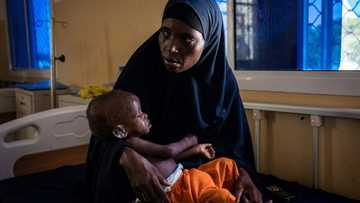'Over 1 in 3 Nigerian Kids Has Access to Early Child Education,' UNICEF Says
- The learning process of children from birth to age eight has been described as the bedrock of their life's development
- This description was given by education experts during a media dialogue organised by UNICEF and the Federal Ministry of Information
- According to the experts, early learners must be provided with the appropriate environment for their learning process
One out of three children in Nigeria has access to Early Child Education (ECE), the United Nations Children's Fund has said.
Yetunde Oluwatosin, UNICEF's education specialist said that while the early learning process is a critical time for every child, over one in every three children, between the ages of three and four attend ECE.
She noted that while this ratio is 36 per cent of the total child population in the country, at least 10 million are not enrolled in ECE.
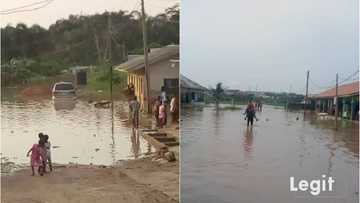
Read also
As flood ravages 34 states in Nigeria, UNICEF gives details of children affected, way forward
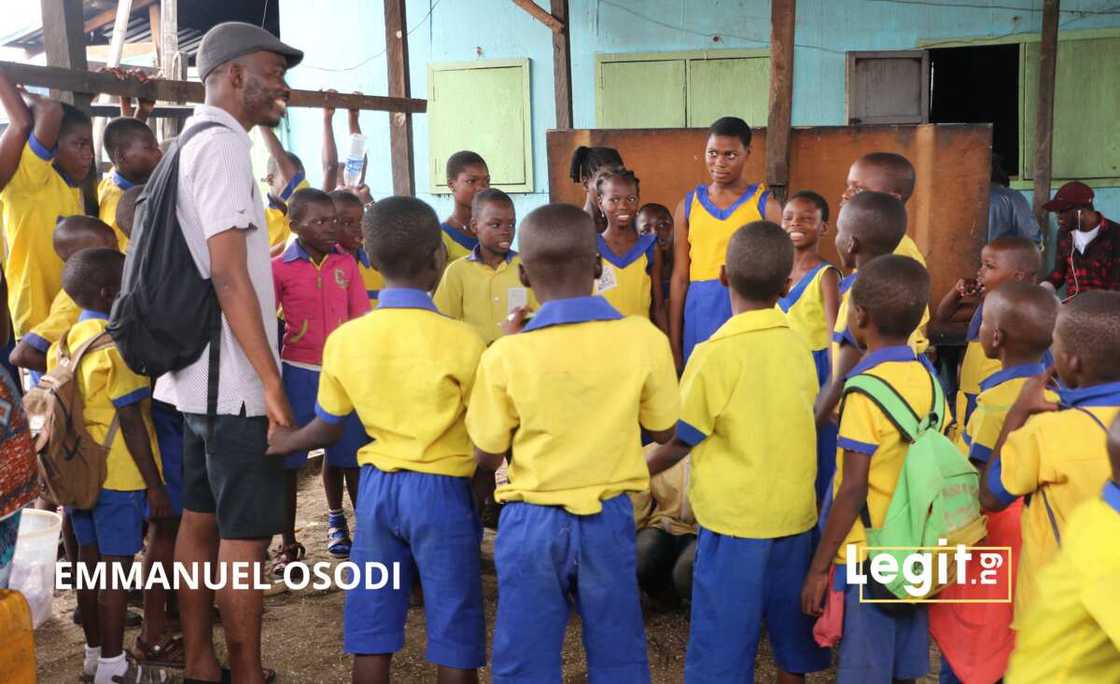
Source: UGC
ECE also known as nursery education, is a branch of educational theory that relates to the teaching of children from birth up to the age of eight. It is also described as an important period in a child's development process. This process involves the use of play-based education for the learning process among children.
PAY ATTENTION: Share your outstanding story with our editors! Please reach us through info@corp.legit.ng!
Oluwatosin said this at a two-day media dialogue on ECE organised by the Child Rights Information Bureau of the Federal Ministry of Information in collaboration with UNICEF on ECE in Sokoto state.
Oluwatosin added that globally, fewer than one out of three children attend ECE while in West and Central Africa only one in four children which accounts for 24 per cent of the total child population attend ECE.
She listed poor subsector analysis planning and coordination which includes low workforce, poor training and infrastructure, inadequate spending on ECE, low public demand for ECE, insufficient ECE teaching and learning materials and low support for early learning even at home as some of the challenges hindering improved ECE.
Posing some questions, Oluwatosin queried:
"Even teachers on the ground; are they willing to play or engage the children in these kinds of play-based learning? Are they well trained? Do the teachers also have at their disposal the needed learning materials for ECE?
"The large inequalities persist as eight per cent of the poorest children versus 78 per cent of what is obatinable among children of the rich who attend ECE."
Also decrying the teacher-to-pupil ratio (PTR) in ECE centres, Oluwatosin noted that the National personnel Audit of Universal Basic Education, 2018, shows that there Nigeria suffers a PTR of 1:45 as against the approved 1:25 ratio.
In his remarks, UNICEF's communication specialist, Dr Geoffrey Njoku, there is a need to focus on ECE as it is the bedrock of literacy and numeracy everywhere across the globe.
Njoku said:
"We want to have children who can code, the world has changed and we need Nigerian children to be at par with their mates across the globe. And so we are here to push that agenda and advocate for improved ECE in Nigeria."
The same goes for, Dr Amy Panyi, the country coordinator of the Early Childhood Development Initiative (ECDI), - an Abuja-based non-governmental organisation focused on opening a world where everything is possible for every child.
Panyi said play-based pre-primary education is the best way children can learn at home or in learning centres.
According to her, the play-based learning process helps children develop their psychosocial skills, build self-confidence and esteem, improve their critical thinking ability, be innovative and exploitative and become creative.
She also discourages moves by parents and teachers to strongly admonish children at the early learning age because pressure can limit their brain development and subdue their self-esteem.
She said:
"As early child educators, you don't tell a child that you're wrong because it demoralises them and makes the child lose confidence and ability to be curious about his or her environment.
Our aim is to let our curriculum at the early stage be reflective of a play-based learning conducive for child development."
Speaking further, Oluwatosin listed some of the recommendations that need to be adopted to improve Early Child Education in Nigeria.
She said training and retraining of teachers on ECE are key to an improve early childhood learning for Nigerian children.
While parents must prioritise the learning of their children as they are considered the first educators, there is a need to strengthen their capacity in imparting knowledge to early learners.
Her words:
"Teachers must be able to teach, not just to teach anyhow but very well so that our learners can learn very well; quality assurance and standards must be maintained."
On the part of the government, Oluwatosin called for appropriate policies, budgeting and planning strategies for leaders and implementing partners on improving ECE as well as the adoption of child-centred methods of learning techniques.
She added:
"We must also give learners the appropriate space to learn and ensure collaboration with leaders in our various communities and the religious congregations."
She also called for improved health and nutrition of the early learners which she described as an important contributor to a child's brain development.
How we enrol 'drop-out-married' girls into schools in Kano community, father highlights
Parents in Tarda community in Ungogo local government area of Kano state have adopted different measures to ensure their girls are not enrolled but stay in school to complete their basic education.
One of a such parent is Mustapha Abdullahi Tarda whose focus is on making sure that girls who were married off earlier go back to school.
Also, mothers in the community encourage each other through an association supported by United Nations Children’s Fund and the Foreign, Commonwealth and Development Office.
Education experts reveal why Nigeria is experiencing low learning outcomes
Legit.ng had earlier reported that experts across the country have called for strategic approaches to improving learning outcomes in school children.
The experts warned that 70 per cent of the children who are currently in school are not even learning.
According to them, there is also a need for all stakeholders in education to work towards ensuring teachers' development bearing in mind, the importance of training and retraining school instructors.
Source: Legit.ng

Nnenna Ibeh Nnenna Ibeh is a journalist with over 10 years of experience with various media organisations including Premium Times. Being on the front burner of reporting politics and the different dimensions of governance, she is also passionate about girls' education and women's and children's health. With degrees in Journalism, Peace Studies & Conflict Res., and Dev. Studies, Nnenna has worked in the dev. sector as a communications officer for the Centre for Democracy and Dev. email: ibehnnenna@gmail.com

Segun Adeyemi (Current Affairs and Politics Editor) Segun Adeyemi is a journalist with over 9 years of experience as an active field reporter, editor, and editorial manager. He has had stints with Daily Trust newspaper, Daily Nigerian, and News Digest. He currently works as an editor for Legit.ng's current affairs and politics desk. He holds a degree in Mass Communication (Adekunle Ajasin University). He is a certified digital reporter by Reuters, AFP and the co-convener of the annual campus journalism awards. Email: segun.adeyemi@corp.legit.ng.


